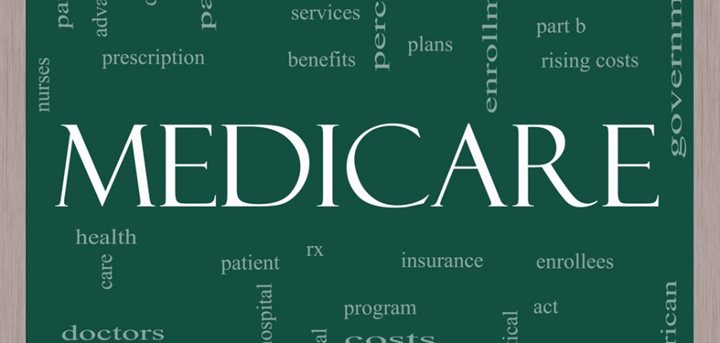Medicare is definitely one of the most confusing parts of our government, and unfortunately, there isn’t a whole lot of information available that make it easier to understand. To help you, we’ve made a list of the ten terms you need to be familiar with to better understand Medicare health insurance.
10. Coinsurance
This is the amount you may be required to pay when you visit a doctor or receive medical services. Coinsurance is your share of the cost after you’ve paid any deductibles. Generally, this cost is represented as a percentage of the bill for services. So, if you pay 10% of a $100 service, you’ll be responsible for $10.
9. Deductible
This is the amount of money you must pay for healthcare or prescriptions before original Medicare, your prescription drug plans, or other insurance companies will begin to cover your healthcare services. Each plan will have its own deductible amount that can be anywhere from $0 to as high as $6,000. A lower deductible will increase the total cost of the plan.
8. Exception
An exception is a type of Medicare prescription drug coverage determination. This is when your plan has made a decision to cover a drug that is not on its drug list or formulary plan. You and your prescriber can request an exception, and your prescriber must provide a statement for the medical explanation of why there should be an exception for this specific medication.
7. Extra Help
This is a Medicare program that is used to help people with limited income and resources. Extra Help is used with Medicare Part D, which is Medicare’s prescription plan that helps cover program costs, premiums, deductibles, and coinsurances. It can also assist in lowering the cost of covered medications by your plan.
6. Original Medicare
Original Medicare is fee-for-service coverage under the government, where your healthcare is paid for using benefits that you’ve received over your lifetime from working. Original Medicare is considered Part A and B benefits, which are your hospital and medical insurance coverage.
5. Medicare Advantage Plan (Part C)
This type of Medicare health plan is offered by private companies that connect with Medicare to provide you with all of your healthcare needs. Medicare Advantage will provide you with Part A, B, and D benefits with just one premium cost that you will pay to the company you purchased the plan from. If you are enrolled in a Medicare Advantage plan, all Medicare services will be covered through the plan and won’t need to be paid for separately under original Medicare.
4. Medicare Medical Savings Account (MSA) Plan
An MSA plan combines a high deductible Medicare Advantage plan and a bank account. The plan deposits money from Medicare into the account and allows you to use this money to pay for your healthcare costs. Only Medicare-covered expenses count toward your deductible and this is the only thing you can use this bank account for. The amount deposited is less than your deductible, so you will usually have to pay something out-of-pocket before your coverage begins.
3. Medicare Prescription Drug Plan
Medicare Prescription Drug plans are also referred to as Medicare Part D. This is a stand-alone plan that gives you prescription drug coverage in addition to original Medicare (Part A and B). Part D plans are offered by private insurance companies that have been approved by Medicare. Medicare Advantage plans usually offer prescription drug coverage that follows the same rules as Medicare Part D.
2. Medicare Private Fee-for-Service (PFFS) Plan
This is a type of Medicare Advantage Plan that allows you to go to any doctor or hospital that you could if you had original Medicare. A PFFS plan determines how much it can pay the doctors and hospitals you visit, and how much you must pay each time you receive health services from these places. With a PFFS plan, you will need to follow the rules carefully as unapproved expenses may not be covered and you will have to pay for these costs out-of-pocket.
1. Premium
A premium is a periodic payment made to either Medicare, a private insurance company, or a separate healthcare plan. You make this payment in exchange for health or prescription drug coverage. Each premium will be different based on which plan you choose and is usually paid monthly.
Featured Image: DepositPhotos/© mybaitshop








